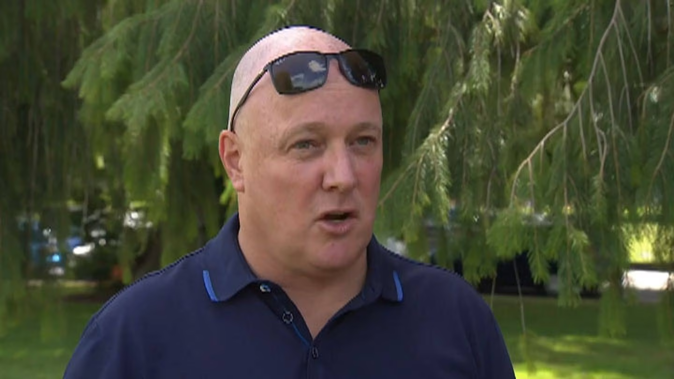
The annual Budget announcement is always a major PR opportunity for the Government to lay out its vision for the country.
Last Thursday, Labour presented its plan – and unsurprisingly, opposition parties weren’t on board with what they saw.
Speaking to The Front Page podcast after the big Budget reveal, National Party leader Christopher Luxon says the Budget failed to answer fundamental issues facing the country.
“I was looking for three things,” he says.
“Was there discipline in Government spending taking place? Is there some tax relief for Kiwis so they can keep more of their own money in their own pockets? And is there a plan to grow the economy? I didn’t see any answers to those three things.”
Luxon expects the decisions made in this Budget will ultimately weigh down the economy for far longer.
“When you dive into the numbers, more spending plus more debt means higher interest rates for longer, and that’s going to cause a lot of pain and suffering for everyday Kiwis.”
Finance Minister Grant Robertson has made a deliberate decision to spend, despite calls for austerity from Reserve Bank Governor Adrian Orr, who has made no secret of his plans to engineer a recession. This means we will likely see inflation last for longer, although there will be a lower number of job cuts.
So where does Luxon sit in this debate between a short, sharp recession and prolonging inflation for an extended period?
“You’ve got Adrian Orr pumping the brakes, taking interest rates up, and you’ve got Grant Robertson and Chris Hipkins flat to the floor on the accelerator, spending like never before. That’s the tension, and those two are out of sync. And that’s just not sustainable,” says Luxon.
- Kate Hawkesby: Luxon dropped the ball on the Budget
- Politics Central: Could Budget 2023 have been improved?
- ZB's Chief Political Reporter: Will Budget 2023 affect next week's OCR decision?
The National leader’s argument is that by not getting on top of inflation now, we risk exacerbating the economic strain over time – which could lead to greater pain down the line.
“We’ve seen this happen before in the late 70s and early 80s. When you have high levels of embedded inflation, you end up with high levels of interest rates staying higher for longer – which is what Treasury said [last week]. Then you end up with a slowdown in the economy and you either have anaemic growth, slow growth or no growth, which leads to a minor recession or a big recession.”
If a recession does happen off the back of a prolonged period of inflation, this has the potential to hurt families.
“When people start losing their jobs and they’ve got high inflation with high food prices and rents, and high-interest rates and mortgage repayments, you end up with a different level of pain. And that’s really been my frustration since taking on the leadership role. There are some amber lights on the economic dashboard at the moment.”
The Budget always offers an intense exhibition of the divisions that exist between the big political parties and their seeming unwillingness to work together. In interviews with myriad experts on the Front Page podcast in the last year and a half, a common complaint is frustration at politicians who refuse to work together on solving the biggest problems facing the country.
More often than not, politicians seem more concerned about who’s getting credit for an idea than whether it gets executed.
“I’m less hung up on that,” counters Luxon. “As an outsider coming in, it’s all just about outcomes.”
He argues that partisan politics consistently stands in the way of progress.
“You see it in New Zealand all the time. We had a series of roads that we were supporting investment and infrastructure in. I’m talking about the Waikato Expressway and the extensions around that. Then a new Government comes in and turns those off, then they get turned on again, off again and on again.
“Kennedy said ‘Let’s go to the Moon’ and people landed on the [surface] in nine and half years. So why does it take us longer than that to build a central interceptor in Auckland? Or why has it taken 24 years to build an Eastern busway that’s just six and a half kilometres?”
He goes a step further, saying he would be willing to work with Labour to get key projects across the line regardless of who is in Government so that such decisions are not vulnerable to the whims of politicians every three to six years.
“What infrastructure will make the biggest amount of difference to the most people in the fastest amount of time? And let’s lock and load on what those three to five critical projects are for each region. Let’s agree on how we’re going to fund it between central and local government. Let’s lock it in and get on with it because getting things done is critical.”
To enact any of these big ideas, Luxon will have to fight hard to maximise his chances of winning the upcoming election. And while he has leaned heavily on his competence as a successful business leader, questions are being asked about his charisma as a politician.
A recent Newshub Reid Research Poll showed that 47 per cent of New Zealanders think Luxon is out of touch with the general public – a criticism that has plagued him since he first walked into the job as National leader.
“Look, I’m in touch with New Zealanders each and every week,” he says when asked about this perception problem.
“I go to Wellington on Tuesdays and Wednesdays and I get out of there as fast as I possibly can because I think there’s a real bubble and beltway in Wellington that isn’t representative of what’s going on across the country.
“So, for me, it’s getting out and about, getting to towns up and down the country, having public meetings, town halls and meeting with people in community organisations, schools and businesses. You know, actually getting a sense of what the real issues are.”
That might be the case, but the trick now is getting the voting public to trust that he’s the right person to fix the problems they encounter every day in their lives. And that’s easier said than done.
Take your Radio, Podcasts and Music with you









